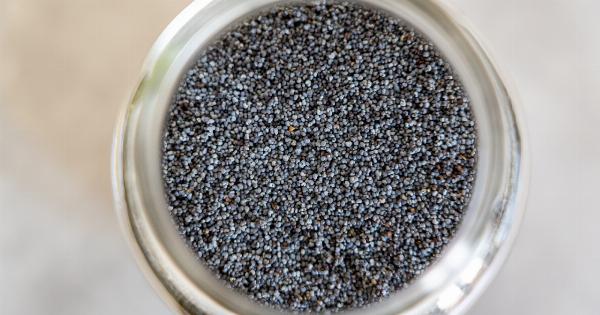In today’s fast-paced era, people are becoming more and more health-conscious. They are paying significant attention to the diet they consume, which is primarily due to the increase in the number of diseases.
When it comes to maintaining a healthy diet, it’s essential to ensure that our bodies receive all the necessary nutrients. But sometimes, we may miss out on specific essential nutrients that our body requires, which leads to various health issues. Here are four nutrients that your body might be lacking:.
Vitamin B12
Vitamin B12 is one of the essential nutrients that our body requires. It plays an important role in maintaining nerve cells and producing red blood cells.
Unfortunately, many people don’t get enough of this nutrient in their diet, and the deficiency of Vitamin B12 leads to tiredness, weak muscles, and numbness in the hands and feet.
People who follow a strict vegan or vegetarian diet, or have medical conditions such as celiac disease, Crohn’s disease, or gut infections are at a higher risk of being deficient in Vitamin B12.
To avoid this, include food sources like meat, eggs, dairy products, and fish in your diet. If you’re not consuming enough of these, you can also opt for supplements prescribed by your doctor.
Vitamin D
Vitamin D is an essential nutrient that our body needs to absorb calcium, which leads to strong bones and teeth. Moreover, it also plays a vital role in maintaining good mental health, improving immunity and preventing chronic diseases.
However, it is estimated that at least half of the population worldwide has inadequate levels of Vitamin D.
The primary source of Vitamin D is sunlight, as it helps our skin produce Vitamin D. But during winter months or for people who live in places where sunlight is limited, it’s often a challenge maintaining sufficient Vitamin D levels.
Fortunately, some foods that are rich in Vitamin D, including fatty fish, egg yolks, and fortified cereals, can help you get the required amount of Vitamin D. Supplements can also be considered after consulting your doctor.
Iron
Iron is an essential nutrient that helps produce red blood cells that carry oxygen to all parts of the body. If you are iron deficient, you may be experiencing symptoms like tiredness, shortness of breath, headaches, and feeling dizzy.
Women, especially during their reproductive years, are at a higher risk of being iron deficient.
Some food sources that are rich in Iron include red meat, poultry, seafood, beans, and dark leafy greens like spinach.
Vitamin C helps the body absorb Iron, so make sure to include fruits and vegetables like citrus or tomatoes in your diet to help with the absorption of Iron. Sometimes Iron supplements are prescribed by a medical professional to treat Iron deficiency anemia.
Magnesium
Magnesium is a mineral that plays a crucial role in various functions of the body such as regulating blood pressure, maintaining strong bones, and keeping our muscles and heart working correctly.
A deficiency of Magnesium can lead to symptoms like anxiety, restless legs, muscle cramps, and insomnia.
Some food sources that are rich in Magnesium include nuts, seeds, whole grains, legumes, and leafy greens like spinach. It’s usually not necessary for people to take supplements that have not been recommended by a medical professional.
All it takes is incorporating these magnesium-rich foods into your daily diet to meet the recommended dose.
Conclusion
Deficiencies of these four essential nutrients are quite common and can lead to various health complications. Therefore, it’s crucial to ensure that you consume a well-balanced diet that includes all of these essential nutrients.
Consult with health professionals, and stay aware of your diet to address any potential nutrient deficiencies before it worsens or leads to severe long-term damage.





























